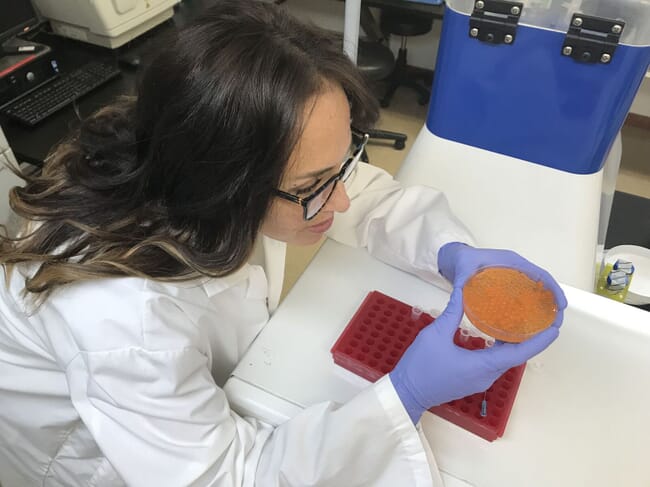In a statement released alongside the company’s 2019 results this morning, Wulf said: “This was a transformative year for AquaBounty, as for the first time in the company’s history we began to grow-out our AquAdvantage Salmon in the United States. Production of both AquAdvantage and conventional salmon at our Indiana farm is progressing on track, with conventional salmon harvest commencing in late Q2 this year and AquAdvantage Salmon harvest commencing in Q4.”

The company also completed two public offerings of common shares, raising net funds of $12.4 million. And Wulf says that: “We believe we are now well positioned to begin to execute our commercial strategy with the harvest and sale of our salmon from both our Indiana and Rollo Bay farms.”
Her claims have been strengthened by the decision of the US Food and Drug Administration (FDA) allowing the import of its AquAdvantage eggs from its hatchery in Canada to its farm in Indiana; FDA approval of the company’s Rollo Bay hatchery and Environment and Climate Change Canada approving the farm’s production facility for the commercial grow-out of AquAdvantage Salmon.
Meanwhile the company’s Indiana farm received two batches of AquAdvantage eggs and is now producing both conventional and AquAdvantage Salmon, bringing total biomass at the farm to 160 tons.
Other key events for the company in 2019 include the closure of its Panama demonstration farm; approval in China to conduct a field trial for AquAdvantage Salmon; and the commencement of marketing and communications activities, including qualitative and quantitative consumer research in preparation for commercialisation.
The increase in losses was attributed to the ramp-up of production operations in Indiana and Rollo Bay, increased legal fees in support of the FDA legal challenge, and increased headcount.




